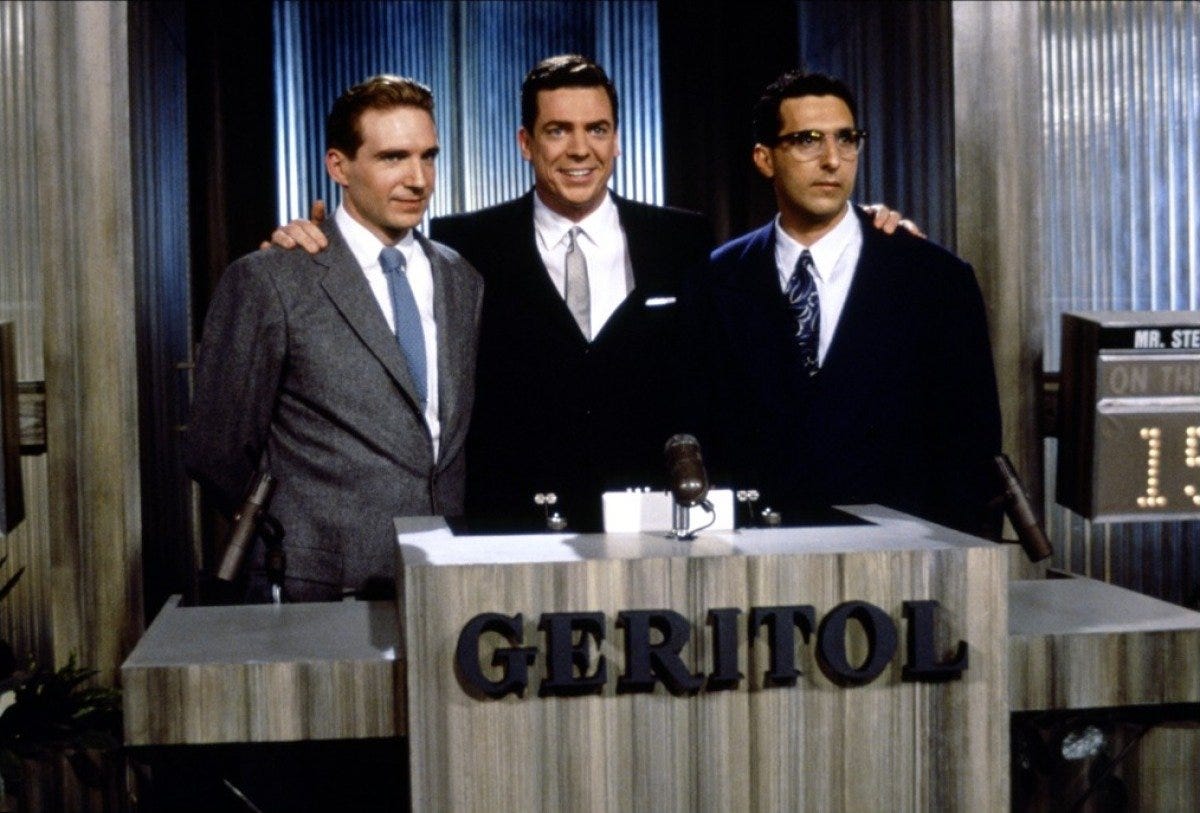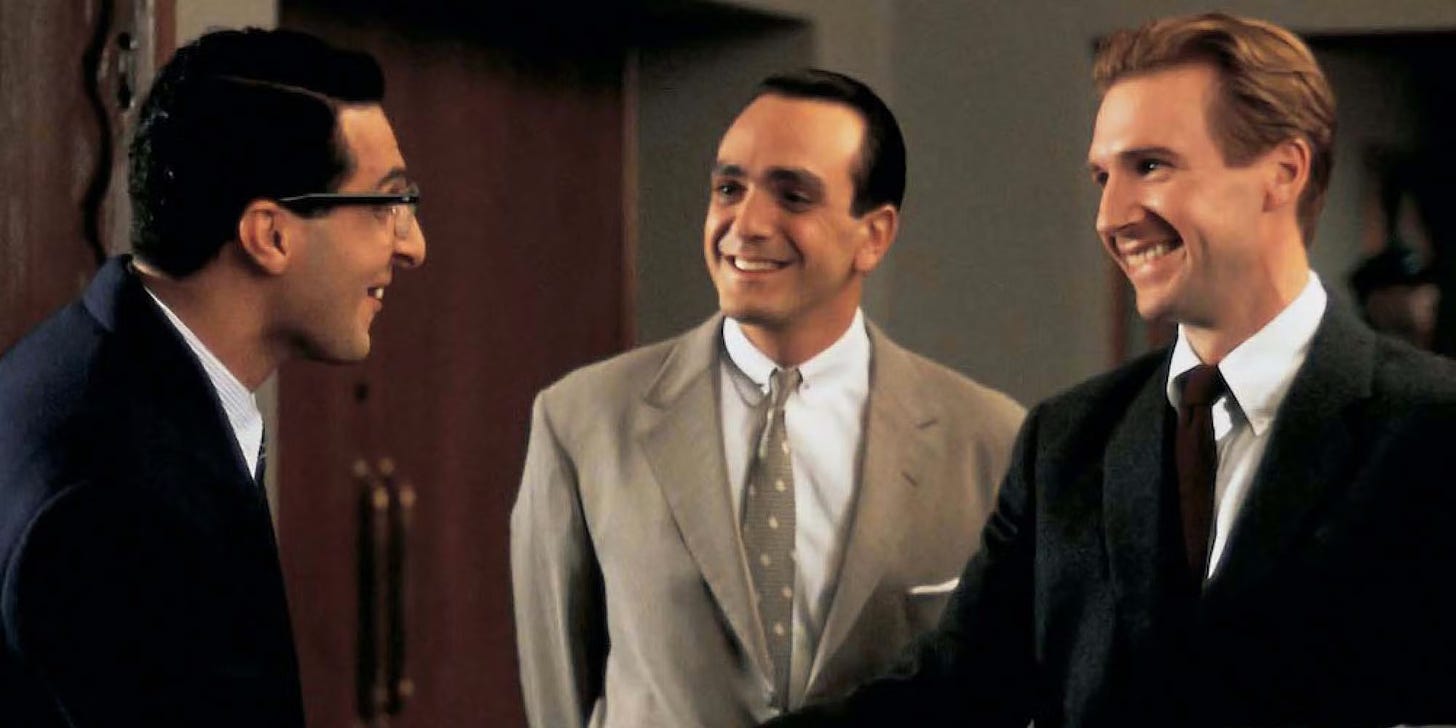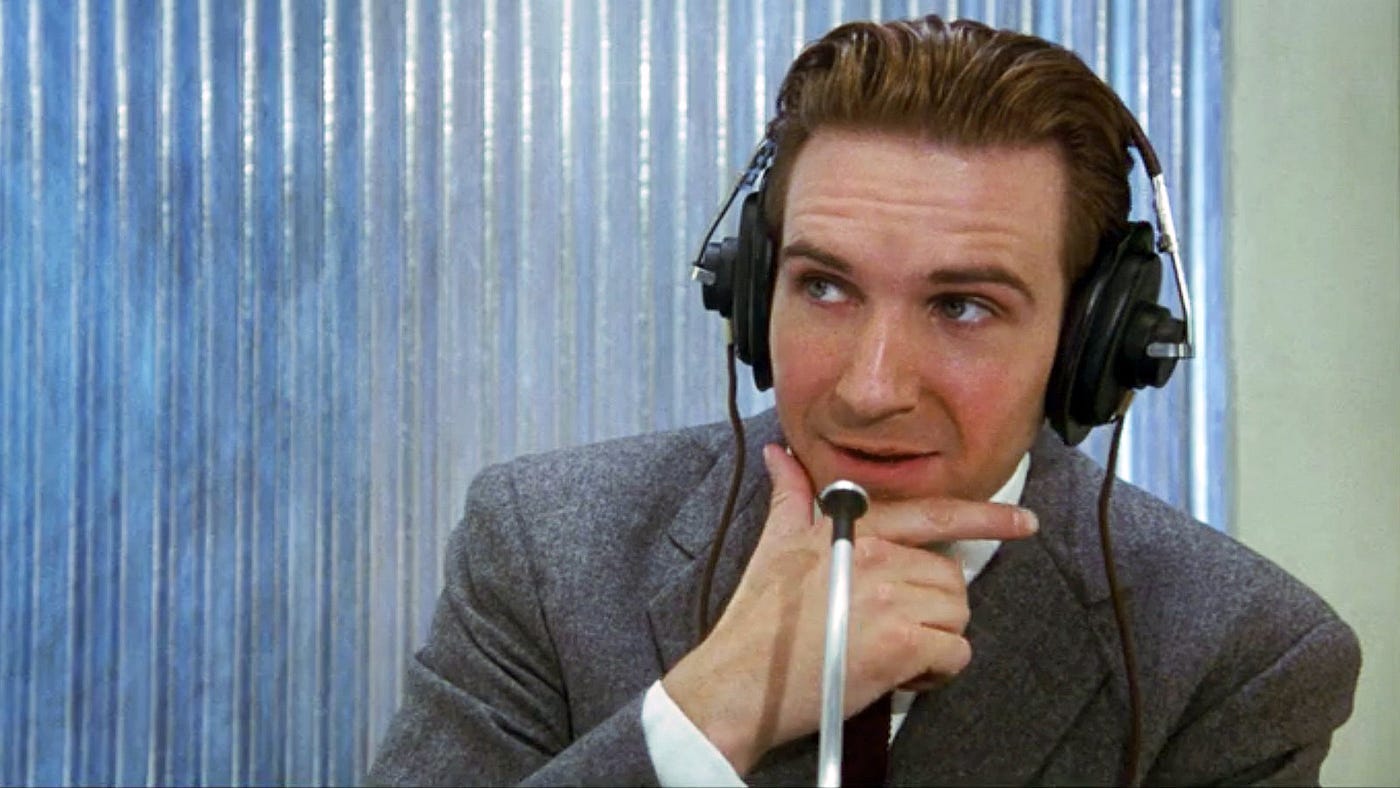‘Quiz Show’ at 30: The Last of the Middlebrow Masterpieces
Hollywood has stopped making movies like Robert Redford's impeccably crafted drama about the '50s quiz show scandals. We're poorer for it.
“You see, the audience didn’t tune in to watch some amazing display of intellectual ability. They just wanted to watch the money.” — Martin Scorsese, Quiz Show
We all have our little moments of cultural disillusionment and here’s one of mine: When Robert Redford’s Quiz Show fizzled out at the box office in 1994, it felt like the end of the prestige Hollywood drama. Emphasis on the word “felt,” because there would be plenty of future examples of studios bankrolling mainstream, awards-friendly dramas and even more examples of mid-budget films a step outside the studio system that would try to fill in those gaps. (Another generation might rue the year when Master and Commander: The Far Side of the World sputtered while the ride-inspired CGI seafaring of Pirates of the Caribbean took off as a franchise.) But Quiz Show continues to haunt me: How could such a handsome, entertaining, beautifully acted, and broadly accessible drama fail to find traction with American audiences? What does the future look like if such a perfect example of old-school, down-the-middle craftsmanship no longer seemed viable?
We’re living in that future now, when even a good film by Clint Eastwood can’t earn more than a nominal release, despite all the money the legendary actor-director has made for Warner Bros. over the decades. (At 94, Eastwood would have seemed to be the last artist grandfathered in by a major studio, but not when that studio is run by David Zaslav.) There’s an argument to be made about Hollywood boxing itself into a corner where it can only produce movies on a massive scale and for the largest possible audience, which has the long-term effect of conditioning the public to narrow its expectations of what a movie can be. Hence a 2024 awards season where Gladiator II, a by-the-numbers sequel to the sword-and-sandals hit from nearly 25 years ago, is being offered up as a Best Picture contender. If you only have one card left in the deck, then that’s the one you have to play.
The types of movies that Redford directed—and the types of movies he frequently made as a marquee star for decades after Butch Cassidy and the Sundance Kid—may be dead, but Quiz Show remains more alive than ever 30 years later, as its themes continue to find deeper validation in the culture. When you see the quiz show scandals of the 1950s wind down in a congressional hearing where contestants and producers take the fall while their co-conspirators at NBC and Geritol get off scot-free, it’s a familiar lesson in how power and accountability works in America. The same country where Charles Van Doren and Dan Enright were shamed and exiled for their roles in rigging the popular game show Twenty-One under the full knowledge and approval of their betters is the one where scores of people were later given prison sentences for laying siege to the U.S. Capital and the man responsible was just re-elected President of the United States. No one is innocent in either case, but justice tends to serve at the pleasure of the powerful.
The top-line talent involved with making Quiz Show starts with screenwriter Paul Attanasio, a former Washington Post critic who created the groundbreaking TV series Homicide: Life on the Streets, and would later script the excellent gangster movie Donnie Brasco. Attanasio plucked his adaptation out of Remembering America: A Voice from the Sixties, a memoir by Richard Goodwin, whose résumé includes a clerkship on the Supreme Court, a stint as a speechwriter and advisor to John F. Kennedy, and, more relevant to this film, a role in the House oversight committee that investigated Twenty-One and the quiz show scandals. (Fun fact: His widow is the revered historian Doris Kearns Goodwin.) Played with an admittedly too-conspicuous Boston accent by Rob Morrow, who was a sensation on Northern Exposure at the time, Goodwin is the crusading hero of Quiz Show, though Attanasio adds a bit of tarnish to his halo.
The opening scene sets the film’s moral terms a bit too bluntly, as Goodwin, fresh out of Harvard Law School, considers the gorgeous 1958 Chrysler that a life in public service won’t afford him. (It also includes a radio broadcast of Sputnik going into orbit, putting the Soviets ahead in the space race. “The sound that says all is not well with America,” says the announcer.) Yet for Herb Stempel (John Turturro), the dominant contestant on the hit NBC show Twenty-One, and Charles Van Doren (Ralph Fiennes), his eventual successor, the temptations of money and fame are too much to resist. As much as Redford and Attanasio frame Herb and Charlie’s decision as a bite from the poison apple, they’re not so scolding as to miss the human vulnerabilities that put them in the wrong spot. It isn’t in Goodwin’s interest to “get” either one of them for cheating. It’s not in the film’s, either.
Redford and his production team, including ace cinematographer Michael Ballhaus, who was fresh off The Age of Innocence, luxuriates in the prime-time ambience of Twenty-One, with its on-set orchestra, its suffocating soundproof studios for the contestants, and its absurd ritual of retrieving the answers from a secure Manhattan bank vault. As we get our first glimpse of the show, Herb’s run as champion has made him a celebrity in his Queens neighborhood, but the ratings have flatlined and the chief sponsor, Martin Rittenhome (Scorsese) of Geritol, wants producer Dan Enright (David Paymer) to lead Herb to the exit ramp. After some cajoling—and the promise of a panel show held out like the rabbit at the greyhound track—Herb agrees to take a dive on the humiliating question of what movie won Best Picture two years earlier.
Waiting in the wings is the perfect TV contestant in Charles Van Doren, an impossibly dashing Columbia professor who hails from a prominent intellectual family headed by Mark Van Doren (Paul Scofield), a Pulitzer-winning poet who taught at the university for four decades. (Allen Ginsberg and Jack Kerouac were among his students.) Though his father cannot bring himself to even own a television—when he’s gifted one later in the film, it’s a scene right out of All That Heaven Allows—Charlie seems to have an innate understanding that he may be better suited to TV than to literary circles, where only his name makes him feel like he belongs. When asked about a book he wrote on patricide during the interview process at the network, Charlie flashes a devastating self-awareness: “You could fill Yankee Stadium with the world’s mediocre novelists.”
Enright and his producing partner, Albert Freedman (Hank Azaria), don’t care about his credentials, other than the Van Doren name bringing legitimacy to their weekly spectacle. They’re in show business and they know a star when they see one. They also have the sense that their man is corruptible, teasing out his moral flexibility in a terrific scene where they float some version of giving him the answers—by, say, giving him the questions he already answered correctly in the audition—and sensing that his “no” is malleable. Their job is to provide a slippery slope. They just need Van Doren to inch up to the edge. When he’s actually on the air and they’re feeding him familiar questions, they’ve got him. And the money and fame will salve his burning conscience.
Fiennes was still relatively new on the scene when he made Quiz Show, having just gained attention the year before for his portrayal of a Nazi war criminal in Steven Spielberg’s Schindler’s List. Though his Charlie Van Doren is not, let us be clear, a Nazi war criminal, the flashes of desire and self-loathing that Fiennes brought to his character in Schindler’s List are still present in Charlie, who both basks in public adulation and stews over his inferiority and lack of integrity. Goodwin can see through him, but he’s nonetheless seduced by his charm like the rest of the country and perhaps a little sympathetic to his plight, seeing up close how much he shrinks before a father who has set an impossible standard. Goodwin is sincere in wanting to make the investigation about corruption in broadcasting, not the little guys hung up in it, but he can’t bring himself to subpoena Charlie until he has no choice.
The scene where Charlie confesses his sins to his father in an empty classroom in Columbia has an almost Shakespearean force, owing in no small part to the casting of Paul Scofield, a decorated and classically trained British actor, as Mark Van Doren. The elder Van Doren’s contempt for television eats away at Charlie, who’s been reduced to a small child who wants his daddy to be proud of him, but Mark also loves his son and hasn’t given a thought to the possibility that he could be implicated in the quiz show scandal. When Charlie comes clean, Scofield’s reading of the “you” in “You took the answers? You took the answers?” slips from surprise in the first question and a growing incredulousness in the second. His thunderous response, “Your name is mine!”, directly pierces Charlie’s soul, because the privileges of being Van Doren have never made up for the shame of his essential mediocrity. His father isn’t a cruel man—quite the contrary, he supports his son in his humblest moment—but he’s late to see the distance between who he wants Charlie to be and who Charlie actually is.
Quiz Show is also one of the rare mainstream movies to note antisemitism in America without necessarily putting it front and center. Herb Stempel and Charlie Van Doren have committed the same sins, but Herb’s reward for blowing the whistle on it is a level of public humiliation that the handsome gentile like Charlie largely avoids, despite his repeated denials about getting the answers. Turturro’s superb performance as Herb mirrors Charlie’s egotism and vanity as a means of demonstrating how differently society punishes them for their blind spots. The scene where Herb regales committee members and the gallery with stories about how Twenty-One manufactures drama takes a turn when he praises Van Doren’s acting skills and uses the Yiddish word “schvitz” to describe the sweat on their brows. He’s the last person to realize that he won’t be rewarded for his wit and candor.
There’s an end-of-the-innocence bent to Quiz Show in the sense that the Twenty-One scandal represented a moment where television was lost as a public trust, much less a valuable tool for knowledge and education. During his investigation, Goodwin succeeds in uncovering the details of a rigged game show, but the film is about a lasting disillusionment more than it’s about bringing the truth to light. The absolute ease with which the heads of NBC and Geritol douse Goodwin’s prosecutorial fire—Scorsese’s reading of “Mercy, what a grueling line of inquiry” is dry as a cracker—says it all. There are protections in place for the elites who actually run the country, and television is a source of such immense power that the people who control it are the star-makers of tomorrow. Back in 1994, Goodwin’s final line (“I thought we were going to get television. The truth is, television’s going to get us.”) seemed heavy-handed. Today, as we welcome the fake entrepreneurial genius of The Apprentice to the White House a second time, it’s undeniable.







Quiz Show is my #1 answer whenever anyone poses the hypothetical "what would you add to the Criterion Collection" question. It's not perfect, but it is notable and underseen. I really love this movie, appreciate you putting the spotlight on it.
Walked to the library to borrow the DVD after reading this and just finished my rewatch. Thanks for the essay.